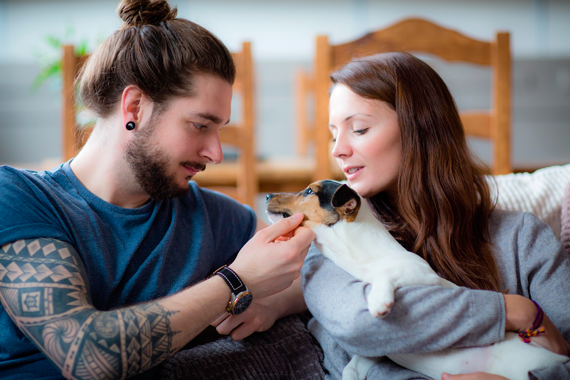
A Barclaycard survey of UK spending during lockdown has revealed that pet purchases were one of the biggest expenses.
In total the survey found that £40.6 billion was spent on items during lockdown, as people tried to have more fun while stuck at home.
The new research says there were three clear categories of spenders during this period: parents who spent £623.60 per person on entertaining or home-schooling their children; home-lovers who spent £508 each on smartening up homes and gardens and pet purchasers – people who spent an average of £635.20 on buying a new pet.
While the number of people buying a new pet was relatively low at 5% of those questioned, they did spend the most of all the categories, it says.
The research from Barclaycard Payments, which processes nearly half of the nation’s credit and debit card transactions, reveals that UK adults have spent an average of £771.34 each on dispensable items in recent months.
This comes as an increasing number of retailers launch innovative ‘insperience’ products and services designed specifically to be used at home during the months of lockdown.
Of those who bought something, a third found that their purchases made lockdown more enjoyable and almost three in 10 purposefully selected things that would make them, or their family, happy.
The survey of 2,000 representative people also found that most people were very happy with their lockdown spending and intended to keep their purchases.
Kirsty Morris, managing director for account development at Barclaycard Payments, said: “Being at home for such an extended period of time meant that Brits became imaginative with how they spent their money. Whether it was to keep themselves or their families entertained, people have emerged from lockdown with an impressive array of quarantine buys.
“From little luxuries to big investments, the nation sought out the things that would bring them happiness and provide entertainment at home. A trend recognised by an increasing number of retailers seeking to attract customers with fun ‘insperience’ services and products during the months of lockdown.
“Things that could have been left redundant as lockdown eased, have instead have made their way up the ranks to be deemed household must-haves that people didn’t know they needed. Many of the items bought have also encouraged people to take up new hobbies, but perhaps more importantly, were successful in making such an unusual period, that little bit more enjoyable.


